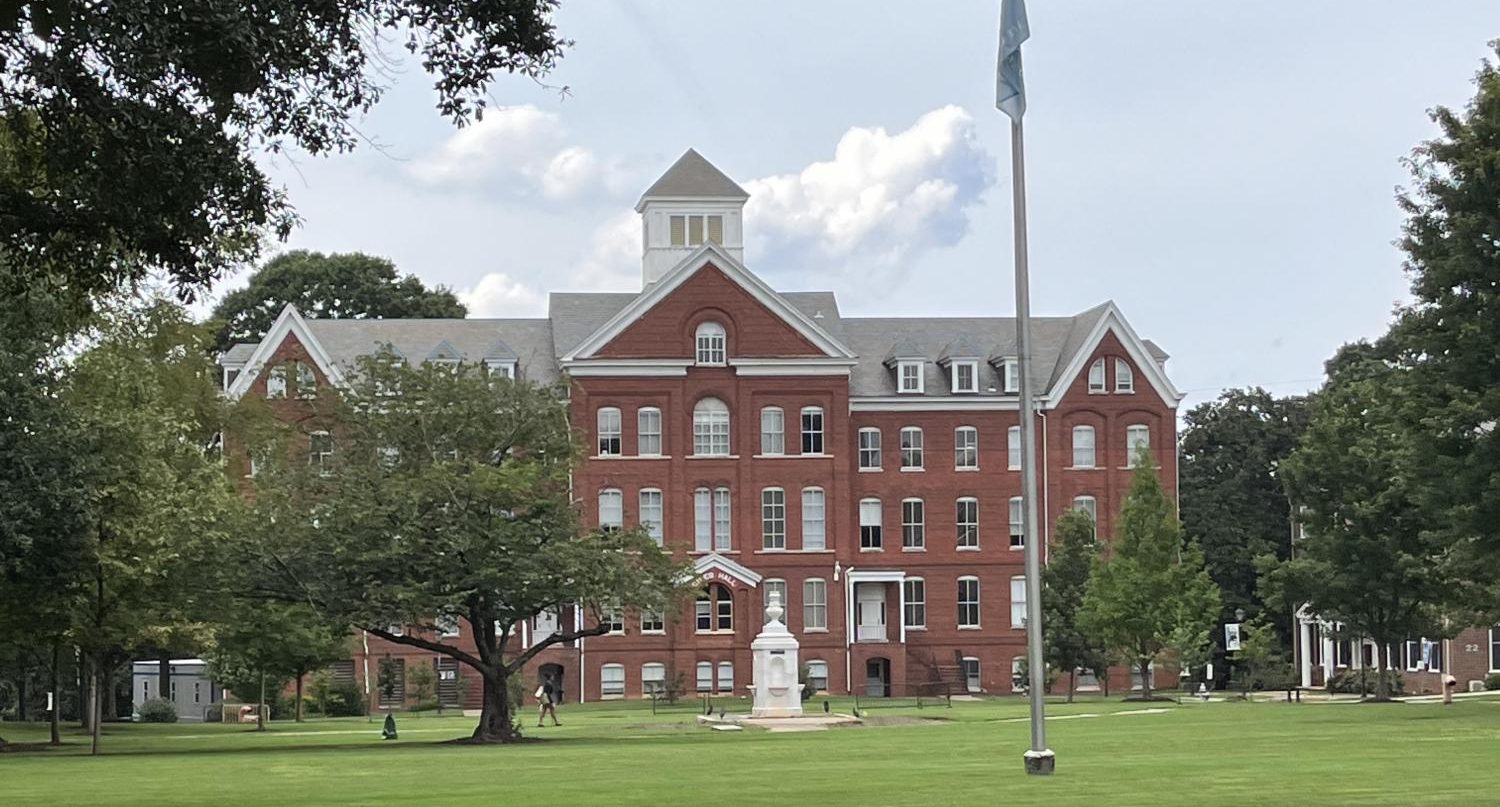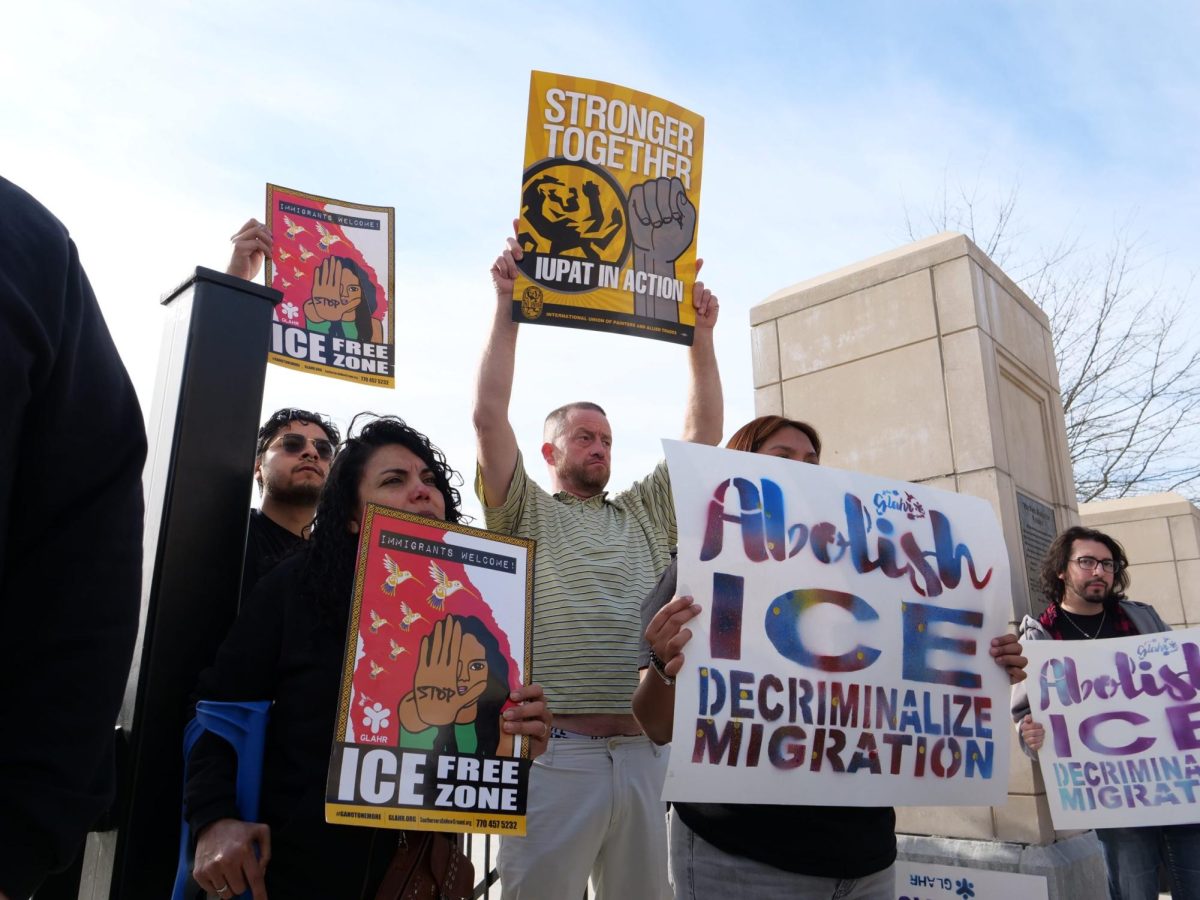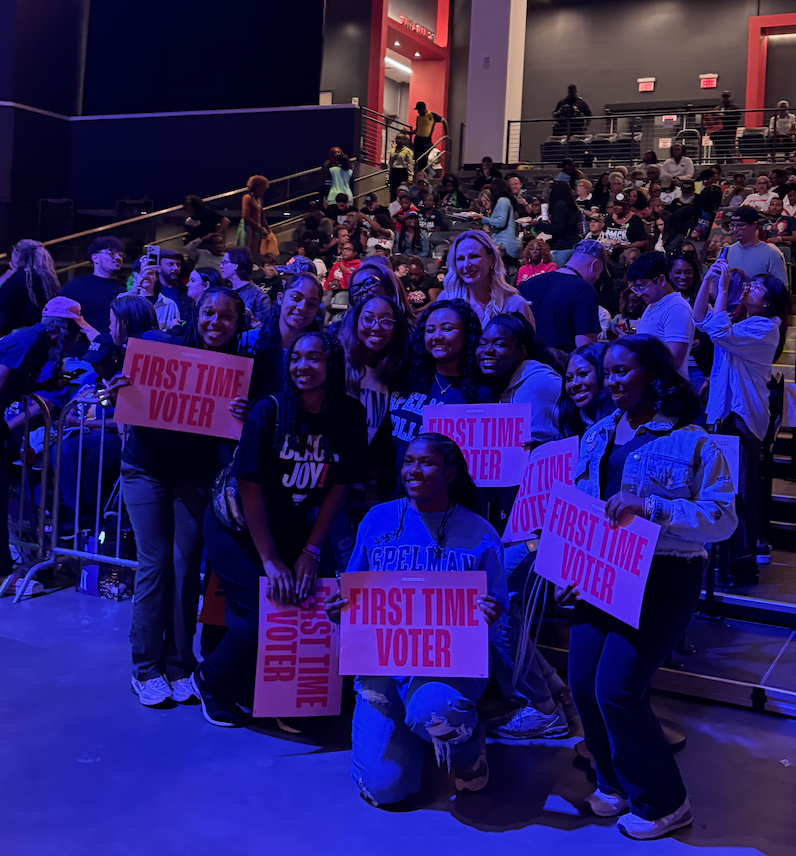ATLANTA – Tuesday, April 29, marked the 100th day of Donald Trump’s second term as president, following his Jan. 20, 2025, inauguration. Traditionally, the first 100 days is a benchmark of a presidential term for key policy rollouts, national addresses, and campaign promises in action.
For many college students, Trump’s return to the White House has reignited angst, fear, and dread. From higher education and financial aid to LGBTQ+ rights and racial justice, the administration’s actions are deeply felt, especially at Spelman College, a historically Black women’s institution in Atlanta.
In classrooms, group chats, and breaks in between classes, many students fear what Trump’s presidency will bring for the next four years, and how it may shape their future. The Blueprint spoke with seven students to get their thoughts on the first 100, which revealed a mixture of emotions ranging from fear, frustration, and personal impact.
Campus on Edge
When asked to reflect on Trump’s first 100 days in office, Spelman students shared their emotions, citing feelings of nervousness, dread, and disillusionment.
“As a first-generation college student, Trump’s first 100 days in office left me shocked, anxious, and deeply unsettled,” said Nicole Reid, a sophomore English major.
“My first thoughts about his first 100 days in office is being nervous as I have seen people who voted for him want to recant their vote,” said De’Aiyziah Goodwin, a senior English major.
Others were feeling less surprised as they expected Donald Trump to follow through with his predictable behavior.
“I’m not surprised by Donald Trump’s behavior. I expected nothing different,” said Denim Fisher, a freshman English and Spanish double major with a pre-law focus.
“DJT is doing what DJT said he was going to do. Nothing being done surprises me,” stated Jasmine Patrick, a junior student.
Billionaires, Government Cuts, and Who Pays the Price
Trump’s decision to lay off federal government employees and appoint CEO of Tesla Elon Musk as senior advisor for the Department of Government Efficiency (DOGE), have heightened students’ concerns.
“It made me question not only our leadership, but also the humanity of those in power—especially wealthy billionaires who seem far removed from the struggles of everyday people,” said Reid.
“The cuts that he made on government employees are especially impactful to me since I am considering pursuing a career in public service and in the government,” said Mackenzie Hickson, a rising senior majoring in Health Science.
Higher Education, HBCUs, and Financial Aid
Many Spelman students rely on financial aid, Pell Grants, and loan forgiveness programs. Proposed cuts to these resources have left them in a state of uncertainty.
For Nicole Reid, a first-generation college student, she states that coming from a lower-income community, she has felt the effects of these proposed cuts.
“As a first-generation college student from a low-income background, I felt the effects of his proposed cuts to federal financial aid and education programs. When you’re already sacrificing so much just to stay in school, the thought of losing support like Pell Grants or loan forgiveness feels like the system is pushing you out instead of helping you succeed,” said Reid.
Attacks on Healthcare and Public Safety
For Denim Fisher, the administration’s action is hitting close to home. Fisher, a double-major in English and Spanish with a pre-law focus, shared how Trump’s attacks on public housing have affected her 74-year-old grandmother.
“I was on the phone with my grandmother…and she said, “I’m not doing well,” Fisher said. “She told me there was a meeting in her building and people were scared—really scared—because of Trump’s attacks on the U.S. Department of Housing and Urban Development.”
Fisher added, “She told me that she might have to find a part-time job to cover rent. She has already worked. Now she’s being forced to consider going back to work, not for extra spending money, but so she doesn’t become homeless. That’s terrifying. That’s disgusting. That’s unjust,” said Fisher.
“His attempt to repeal the Affordable Care Act also hit close to home,” she said. “Families like mine rely on affordable healthcare, and seeing that threat creates real anxiety–because access to basic medical care shouldn’t be a luxury.” said Reid.
Hickson shared her concerns about the possibility of a public health crisis in the future in this country.
“I am deeply concerned about what that means for a public health crisis, like another global pandemic, which is inevitably going to happen again. If the national government doesn’t have the support in place to control the spread and provide states with the tools and incentives to protect their people, then there’s nothing stopping a state from throwing caution to the wind — and that could have detrimental effects for the populations involved,” said Hickson.
Racial Justice, Police Brutality, and the Rollback of Progress
In 2020, there was civil unrest from Black Lives Matter protests amidst a global pandemic. As of 2025, Trump has stated that he’d give police officers qualified immunity to protect them from civil lawsuits and prosecution for certain actions taken while on duty, and has pressured companies to roll back their DEI initiatives like Target, Walmart, and Amazon after they incorporated programs that support Black owned businesses and consumers.
“As a young Black woman, I also couldn’t ignore how his administration treated issues of racial injustice and women’s rights,” said Fisher, “Instead of addressing police brutality, Trump defended it — pushing for police immunity while ignoring the cries for justice after the deaths of people like George Floyd and Breonna Taylor.”
In addition to attacks on police brutality and women’s rights, students also noted the rise of racial tension within their own communities.
“I am from a community that mostly consists of Black people and Hispanics. We have always had tension between the two groups where I live, but since the election, it has gotten much worse,” stated Mikyah, a sophomore Political Science major.
Environmental and Community Impact
Some students have connected Trump’s 100 days to the rollbacks of environmental protections and how those decisions affect communities of color.
“I am in Environmental Politics and Policy, which is a class that I have taken this year with Professor LaToria Whitehead. The class has truly opened my eyes to a myriad of problems we face within communities of color,” said Jewel Featherstone, a sophomore International Studies major. “He has debunked many acts that were put in place to ensure the protection of the Environment and affordable health care acts established by the Obama presidency that I believe should still be in place.”
Spelman Students and Their Political Engagement
Spelman students are staying politically engaged more than ever since Trump’s administration took office by researching policies, watching the news, and spreading awareness to their peers and family members to encourage change.
“I find myself researching policies, tuning into hearings, and staying informed about executive orders. I believe real change starts with awareness and action, and I want to be part of that change—especially for people who look like me and come from where I come from,” said Reid.
“I think I’m about the same when it comes to political engagement,” said Goodwin. “But coming to Spelman has pushed me to pay more attention to current events. In many of my classes, we talk about what’s happening in the world—and how these moments, unfortunately, will become part of our history.”
Some students are interested in this administration during this political climate due to Trump’s decisions while signing executive orders.
“I am more engaged because this is the most interesting political time because you know Donald Trump’s next move but you don’t know when it’s going to happen,” said Tabb.
“Radicalism means reminding Black children they deserve it all, plus more. It’s calling your grandma and asking her for difficult truths. Radicalize your neighbors, your dorm mates, your parents. Do it now,” said Jasmine Patrick.






